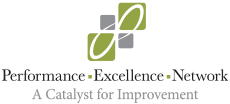
Stressed Spelled Backwards is Desserts: How to Reduce (Workplace) Stress
October 25, 2016
Things are a little tense these days. We’re in the final stretch of what many experts are calling the most stressful, polarizing Presidential elections in generations, filled with talk of building walls, deporting immigrants, and hiding emails. And though calmer now, this summer many American cities (the Twin Cities included) endured countless nights of civil unrest, in the wake of multiple police killings of African American men. I suppose this is what it felt like in the early 60s (1960s or 1860s, for that matter). We seem like a country divided: man versus woman; black versus white; rich versus poor; left versus right. But this isn’t a commentary on our cultural, racial, political divide (though many articles are, appropriately, being written on that as well). My message today is about the effect of hostility and conflict on our health, our well-being, and our professional effectiveness, and the role leaders must play in preventing – or at least reducing – the impact of such conflict in the workplace…
The American Psychological Association (APA) conducts an annual “stress survey,” quantifying the causes and impacts of stress on our lives. While the 2016 APA annual stress survey isn’t due out for three more months, early indicators suggest that stress levels are up from a year ago. In the 2015 survey, the average American adult rated his/her stress as a 5.1 on a scale of 1-10, up from 4.9 the year before (“healthy” stress is considered 3.8). APA and other sources are hinting that the 2016 survey, which comes out in January, will indicate even higher levels of stress. More concerning: 24% of adults report experiencing “extreme stress” (ratings of 8, 9, or 10) – up from 18% a year ago. More than a third (34%) report their stress is higher than a year ago, and 78% report experiencing at least one physical health symptom because of stress.
What’s causing the stress? Money is the most commonly reported stressor (67%), followed by work (65%), family responsibilities (54%), personal health concerns (51%), and the economy (50%). Interestingly this year – and related to my opening comments – APA reports that 52% of Americans feel the election is a “very” or “somewhat significant” source of stress (the level of stress is the same for Republicans as it is Democrats, by the way).
Women are slightly more stressed than men (5.3 versus 4.9). Millennials (6.0) and Gen Xer’s (5.8) are more stressed than their elders (Boomers 4.3, Greatest 3.5). I guess the message here is that the stress can come from a variety of sources, but affects us all more or less. It’s impacting our sleep (only 33% report having good sleep quality and nearly half report stress-related insomnia), our eating habits (nearly 40% report eating unhealthy foods due to stress), and our well-being (32% report stress-related headaches; 27% report they cannot concentrate due to stress). It’s also having an impact on our relationships: nearly 50% report losing patience (yelling, arguing, etc.) with a spouse or partner because of stress, and 25% report similar behavior toward co-workers at work.

In fact, other research shows the impact that stress (or, more accurately, hostility and conflict) is having in the workplace. Anna Maravelas, founder and CEO of Thera Rising (“thera” is Greek meaning “to heal”), is a licensed psychologist with a quality background (she has actually studied with Deming). She has been a partner of PEN for nearly a decade (and is facilitating a full-day workshop Dec 6 in Bloomington on conflict prevention and resolution: Self-Defeating Habits of Otherwise Brilliant People®: Preserving and Reversing Workplace Tension and Mistrust). In her research, Anna has accumulated considerable data on the impact that stress has in the workplace. Consider these statistics:
- The average employee spends more than 2 hours per week dealing with workplace conflict.
- 70% of employees see dealing with a conflict as a “very” or “critically important skill,” but
- 88% of employees feel their manager is unskilled at handling conflict.
- And it’s not just manager-to-employee: in healthcare, 60% of new nurses quit their first position within six months due to nurse-to-nurse hostility, and 34% of nurses that experience bullying take more than 50 sick days a year.
- In addition, a study of 1,305 workers found that 42% of respondents said there was yelling and other verbal abuse in their office, 23% said they had been driven to tears because of workplace stress, and 10% said employees had actually resorted to physical violence.
- In a different study, researchers found that more than 50% of 1,500 workers interviewed said they had lost time at work worrying about rude behavior directed toward them. And about 33% admitted to intentionally lowering their commitment to their work because of rudeness.
- Employees who were forced to work in negative climates reported they got less done when fuming about it (50%); no longer did their best work (20%); were less committed to the company and the job (37%); thought about quitting (46%); or actually did resign (12%).
- The cost of workplace violence to employers is estimated to be between $6-36 billion in lost productivity, diminished image, insurance payments, and increased security.
- And to make matters worse, hostility in the workplace definitely bleeds over to impact the organization’s relationships with its customers: 60% of customers claim that they take their business elsewhere when they are treated rudely by an employee — even if they have to drive further or pay more for the same service.
- And 75% of disgruntled customers walk away without telling the manager or supervisor why the company has lost their business.
The APA study indicates that work is the second highest cause of stress with American workers, and the impact on productivity and organizations’ bottom line is perhaps obvious. But the impact on American workers – the actual humans – is equally concerning.
Anna’s research shows that – during times of stress (including organizational hostility and conflict) the heart literally speeds up, pounding at between 100 and 165 beats per minute (“resting” heart rate is typically between 60-80). An individual’s hormones change, adrenaline and cortisol are secreted, blood pressure increases, and the nervous system is stressed. Cortisol, by the way, is related to rapid aging.
But get this: the chemical residue created by a moment of stress lingers for up to two hours. Think about that. When someone at work makes you angry (or someone cuts you off on the highway, or your spouse says something hurtful, etc.), the physiological after-effects can last for up to two hours, with each incident building on the previous one.
Making matters worse: there are estimates that we each experience about 30 stressful frustrations every day – little ones from the toilet paper running out just when you need it, to bigger ones like road rage, to still bigger ones like hostility or violence in the workplace. Thirty times we get stressed, and 30 times we create a physical response that increases your heart rate, changes your chemical balance, and raises your blood pressure. That’s can’t be healthy.
Some research (such as “Deadly Emotions,” Don Colbert, M.D.; A. Spiro, “Health Psychology”) indicates that hostility may be a better predictor of heart disease than cigarette smoking, high blood pressure, or high cholesterol.
So not only is stress and hostility impacting the organization’s productivity and bottom line, but it’s also impacting its employees’ health and well-being.
What can we do about it? Anna recommends a simple – yet highly effective – process that stops the natural, but deteriorating cycle of hostility. It goes something like this…
When you experience a frustration (at work or at home) – be it a disappointment, a demand placed on you, a disagreement – your natural, psychological tendency is to be reflexive. In other words, you focus on the personality: you blame others (“I’m suffering because of their stupidity”) and then you blame yourself (“I’m so stupid…how did I let this happen to me…it’s just another thing I screwed up…I’m such a loser”).
Think about an example you experience recently. Maybe it’s a bad performance review at work. Isn’t it natural to first blame others – to blame the situation? “They just don’t understand how much I contribute…these 360 ratings are all wrong…they don’t get me.” And then eventually – maybe later in the day or after sleeping on it – you begin to blame yourself: “I can’t believe that I’m not going to get that raise…if I only would have tried a bit harder on that project instead…I’ll never get ahead in this company; I’m such a loser.”
Or maybe it’s a personal example. You come home from work and your spouse tells you that your kid got a bad report card. You do what? You naturally blame the kid: “he/she doesn’t try hard enough…they are too involved in other activities…they are lazy…” And then you start blaming yourself: “If I didn’t work so much, I’d have more time for junior and his homework…” And sometimes, it even iterates back to blaming others: “Well, I have to work so much to make ends meet and pay the bills…but why doesn’t my spouse get a job to help with the finances? He/she is wasting their time and putting the stress on me…and now our kids are failing…” And so forth.
It’s natural, but it’s unhealthy. Blaming others in this pattern leads to hostility, indignation, and flooding. Blaming yourself can eventually lead to depression or hopelessness (or at least self-deprecation and confidence issues). Eventually, if the cycle continues, you begin to avoid the other person(s), attack his/her reputation, or – worse yet – result to negative behaviors (like violence). And the impact of blaming yourself often results in withdrawing and/or giving up.

Anna’s solution is to stop the cycle by resisting the impulse to be reflexive, and instead be reflective: instead of focusing on the person(ality) given a frustration, you focus on the problem. Instead of blaming others and then yourself, you explore the reason behind the problem. (In quality, we call that getting to the “root cause.”) Instead of hostility and indignation, you are calm, concerned, and even curious as to what’s behind their behavior. And instead of avoiding or attacking the other person (or withdrawing or giving up on yourself), you open a dialogue and search for solutions.
Sounds simple enough, but keep in mind that you’re fighting your natural physiological hardwiring here! It takes understanding; it takes time; and it takes practice. It also takes “two to tango”: while you CAN have an impact by practicing this process yourself, it is a whole lot more effective if the entire work environment (or home environment) is on the same page! Think of the impact this change of behavior can have on workplace productivity (people are now problem-solvers and solution-finders rather than back-biters and antagonists); on employee satisfaction (you no longer feel hostility toward coworkers and managers, but work together to address issues); and on results (you are focused on issues rather than people, presumably spending more time and energy on the organization’s business rather than the politics of the workplace). And think of the impact this change can have on people’s well-being and health, during a period where hate and hostility only seem to be increasing.
To learn more about Anna’s workshop, visit here.
By the way, the “Stressed Spelled Backwards is Desserts” is a quote from Loretta LaRoche, an internationally-known stress expert and humorist. If all else fails, grab a cookie (but not too many, or that impacts your health as well!).
What other insights do you have regarding conflict prevention and resolution? Participate in a discussion on this topic: visit our LinkedIn group to post a comment.
Never stop improving!
Brian S. Lassiter
President, Performance Excellence Network (formerly Minnesota Council for Quality)
www.performanceexcellencenetwork.org
Catalyst for Success Since 1987!
Photo credit softskillsforhardjobs.com, bbc.com

